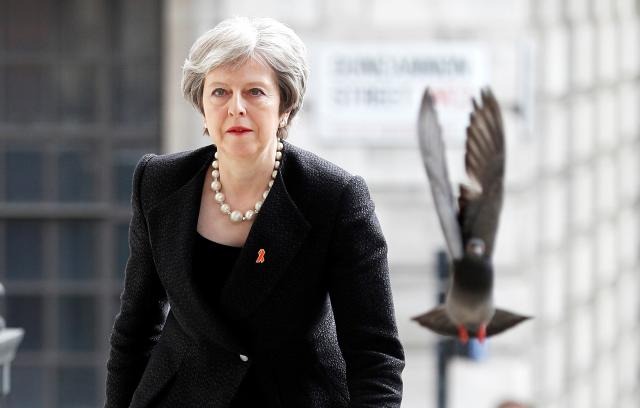On the second day of debate on changes to May’s EU withdrawal bill, lawmakers will vote on amendments handed down from the upper house of parliament over Britain’s relationship to the bloc’s customs union and single market.
But while that vote seemed assured, tensions over Britain’s departure from the EU boiled over in parliament, where lawmakers from the Scottish National Party walked out in the middle of questions to the prime minister in protest at what their leader said was Scotland being ignored in the Brexit debate.
SNP lawmaker Ian Blackford later described the events as “a constitutional crisis” - something May’s spokesman cast doubt on, joking that a better description might be a “parliamentary crisis”.
The fall-out from Britain’s referendum vote in 2016 to leave the EU has reshaped politics, deepening divisions within its main parties and raising tensions between its four nations - England, Scotland, Wales and Northern Ireland.
It has also intensified pressure on a prime minister who lost her party’s parliamentary majority at an ill-judged election last year and tested her already weakened authority.
On Wednesday, May had faced the prospect of losing a vote after rebels had indicated their support for a change introduced by the House of Lords to require ministers to report what efforts they had made to secure a customs union.
But a government proposal to instead report its efforts to secure a customs “arrangement” seems to have been enough to postpone a more searching debate about government policy, with future debates the more likely stage for a revolt.
Britain’s future relationship with the EU, which will define its trade for decades, has become the lightning rod for the divisions that have plagued May’s Conservative Party over Brexit. With the compromise, May has now got more time to hammer out an agreed position on trade with her fractious ministers.
REBELLION
It was not as simple on Tuesday, when May was forced to blunt another rebellion in parliament by offering a compromise that could hand lawmakers more control over Brexit.
The fall-out from Tuesday’s vote, which the government won to wipe out a Lords amendment that could have given parliament the power to force ministers back to the negotiating table, looked set to all but overshadow Wednesday’s votes.
The deal to avert the rebellion, thrashed out on the benches of the House of Commons just minutes before voting, was for the government to discuss changes to the bill that would hand lawmakers more control over the Brexit process.
Some of the pro-EU rebels said they had been assured by May that elements proposed by Conservative lawmaker Dominic Grieve would be brought into the EU withdrawal bill, which will sever ties with the bloc and “copy and paste” its laws.
But Brexit campaigners feared it could weaken Britain’s negotiating stance in talks to leave the EU.
In parliament, May told lawmakers she had agreed with Brexit minister David Davis to “bring forward an amendment in the (House of) Lords”. Her spokesman told reporters that the government would have to present it on Thursday.
“We hope for support from all wings of the party when we bring forward Brexit policy,” the spokesman said.
On Wednesday, votes on whether to remain a member of the European Economic Area, which offers tariff-free access to the EU’s single market in return for accepting free movement of people, goods, services and capital, may expose a split between pro-Brexit and pro-EU lawmakers in the opposition Labour Party.
Earlier this month, the Labour leadership drafted its own amendment to replace the Lords’ one on the EEA, demanding a vote on negotiating a new single market deal with the bloc.
“Now it’s Labour’s turn to show its dysfunction,” said one Labour lawmaker.
More about: #Theresa-May
















































